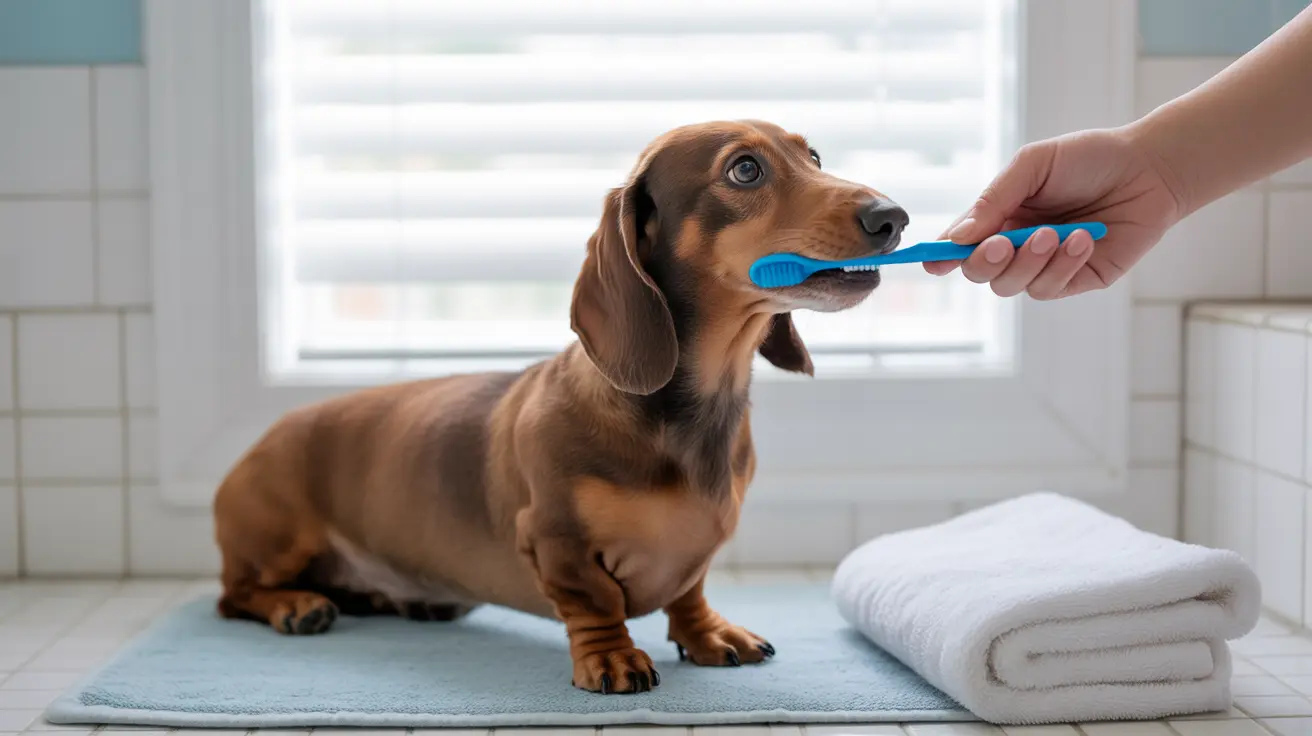Understanding your dachshund's dental health is crucial for their overall wellbeing. These lovable little dogs have specific dental needs due to their unique jaw structure and predisposition to oral health issues. This comprehensive guide will explore everything you need to know about dachshund teeth, from the number they have to proper care techniques.
As a dachshund owner, being informed about your pet's dental anatomy and care requirements can help prevent serious health issues and ensure your furry friend maintains a healthy, pain-free smile throughout their life.
How Many Teeth Do Dachshunds Have?
Adult dachshunds have 42 permanent teeth, which is the standard number for all dog breeds. This includes:
- 12 incisors (front teeth)
- 4 canines (pointed teeth)
- 16 premolars
- 10 molars
Dachshund puppies start with 28 deciduous (baby) teeth, which begin falling out around 12-16 weeks of age. By 6-8 months, all permanent teeth should be in place, though this timeline can vary slightly between individuals.
Understanding Dachshund Dental Anatomy
Dachshunds have relatively small mouths and narrow jaws, which can lead to dental crowding. This unique anatomy, while characteristic of the breed, makes them particularly susceptible to various dental issues. The cramped space in their mouths can make it difficult for food particles to dislodge naturally, increasing the risk of plaque buildup.
Common Dental Problems in Dachshunds
Overcrowding Issues
Due to their small jaw size, dachshunds frequently experience tooth overcrowding, which can lead to:
- Misaligned teeth
- Difficulty cleaning between teeth
- Increased risk of periodontal disease
- Food trapped between teeth
Periodontal Disease
This is the most common dental issue in dachshunds. It begins with plaque accumulation and can progress to severe gum disease if left untreated. Signs include:
- Bad breath
- Bleeding or swollen gums
- Loose teeth
- Difficulty eating
Preventive Dental Care
Daily Maintenance
Regular dental care is essential for preventing tooth problems in dachshunds. Key practices include:
- Daily tooth brushing with dog-specific toothpaste
- Using appropriate-sized dental tools
- Regular professional cleanings
- Dental chews and toys designed for small breeds
Professional Care
Schedule regular veterinary dental check-ups at least once a year. Professional cleanings may be needed more frequently depending on your dachshund's individual needs.
Frequently Asked Questions
How many teeth do adult dachshunds have compared to their puppy teeth?
Adult dachshunds have 42 permanent teeth, while puppies have 28 deciduous teeth. The transition from puppy to adult teeth occurs between 12 weeks and 8 months of age.
Why are dachshunds prone to dental problems like tooth crowding and periodontal disease?
Dachshunds are prone to dental issues due to their small mouths and narrow jaws, which lead to overcrowding. This makes it difficult to clean between teeth and increases the risk of plaque buildup and periodontal disease.
When do dachshund puppies typically lose their baby teeth and get their permanent teeth?
Dachshund puppies begin losing their baby teeth around 12-16 weeks of age. The process of getting all permanent teeth typically completes by 6-8 months of age.
What are the most common signs of dental issues in dachshunds that owners should watch for?
Common signs include bad breath, bleeding or swollen gums, difficulty eating, pawing at the mouth, visible tartar buildup, and changes in eating habits or behavior.
How can I properly care for my dachshund's teeth to prevent dental disease and tooth loss?
Proper care includes daily tooth brushing with dog-specific toothpaste, regular veterinary check-ups, professional cleanings as recommended, appropriate dental chews, and a healthy diet that promotes dental health.
Conclusion
Maintaining good dental health is crucial for your dachshund's overall wellbeing. While their unique anatomy presents certain challenges, regular care and attention to dental hygiene can prevent many common issues. Stay vigilant about your dachshund's oral health, and don't hesitate to consult your veterinarian if you notice any concerning symptoms.






